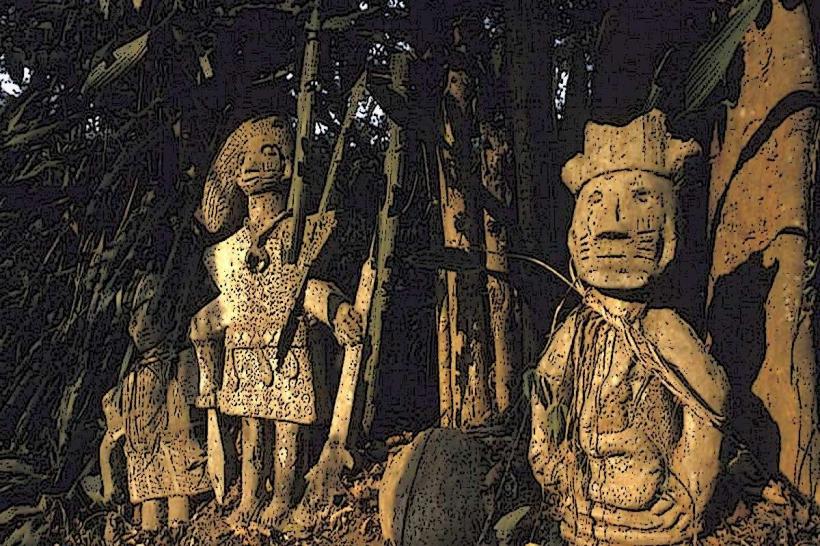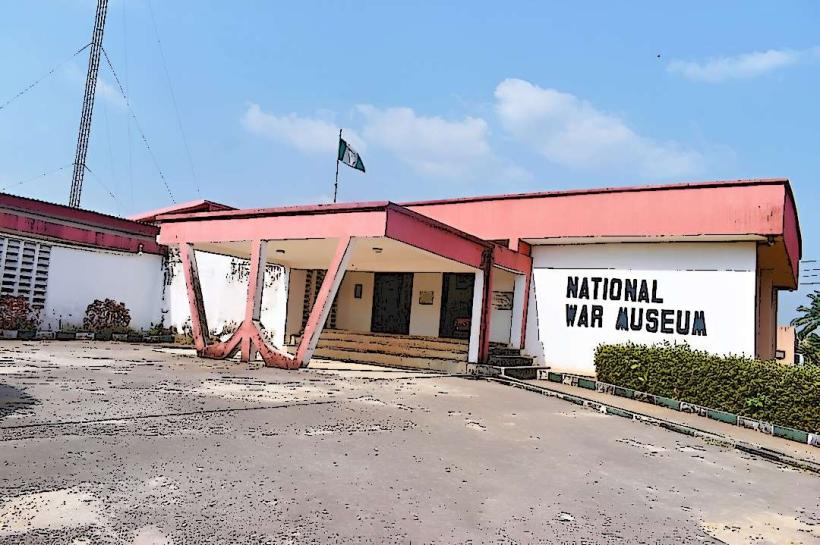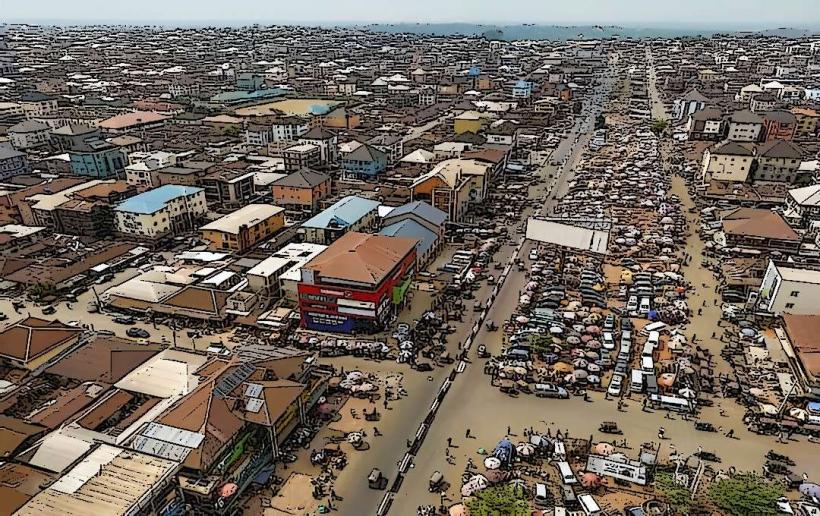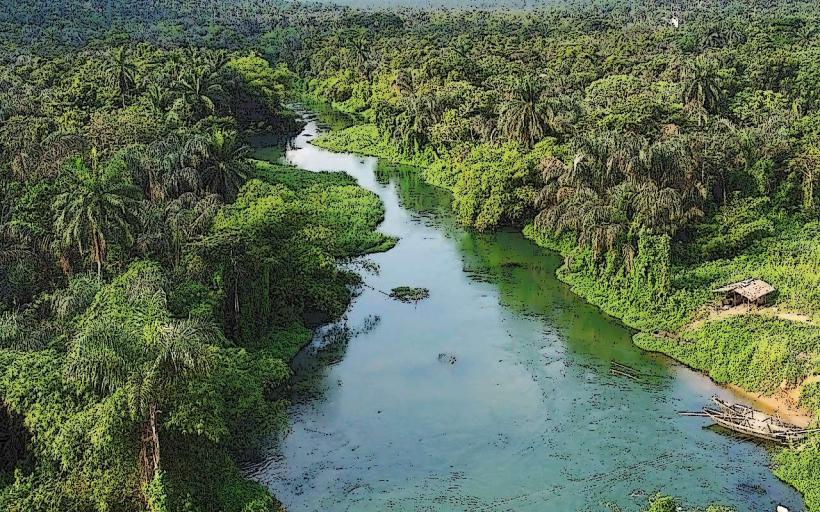Information
City: AbiaCountry: Nigeria
Continent: Africa
Abia, Nigeria, Africa
Abia State serves as the primary commercial and industrial node of Southeast Nigeria, functioning as a major manufacturing center for footwear, garments, and light engineering. It is located in the palm belt of the Niger Delta hinterland, bordered by Enugu to the north and Akwa Ibom to the south.
Historical Timeline
Abia State was created on August 27, 1991, under the military administration of Ibrahim Babangida, having been carved out of the old Imo State. It transitioned through the colonial era as a center for the Palm Oil trade and the British administrative post at Aba. The most significant political reconstruction followed the end of the Nigerian Civil War in 1970, which necessitated the rebuilding of the Aba commercial infrastructure. The primary event shaping its current urban form was the 1920s development of the railway, which established Aba as the regional hub for trade and displaced Umuahia as the primary economic center despite the latter remaining the capital.
Demographics & Population
The state population is estimated at 4,250,000 as of 2026, with the commercial center, Aba, housing approximately 1.2 million residents. The demographic is overwhelmingly Igbo (98%+). The median age of the population is 18.9 years.
Urban Layout & Key Districts
The state is organized around two primary urban centers: Umuahia (Administrative) and Aba (Commercial). Key districts include the Government Layout (Umuahia), which contains the state secretariat; Ariaria (Aba), the site of the largest open-market manufacturing cluster in West Africa; and Osisioma (Aba), the industrial and transit gateway. Development in Aba follows a dense, organic grid surrounding the central markets.
Top City Landmarks
National War Museum (Umuahia)
Ariaria International Market (Aba)
National Museum of Colonial History (Aba)
The Ojukwu Bunker (Umuahia)
Azumini Blue River (Ukwa East)
Transportation Network
Movement between cities is conducted via the Enugu-Port Harcourt Expressway and the Aba-Owerri Road. Internal transit in Aba and Umuahia is dominated by "Keke" (tricycles) and local minibuses. The Port Harcourt-Enugu rail line passes through both major cities. Ride-sharing is available via Bolt. Official taxis are painted yellow with blue stripes. Traffic density in Aba is extreme, particularly around the Ariaria and Osisioma junctions.
Safety & "Red Zones"
The general safety level is moderate, though the state has faced challenges with kidnapping and armed robbery. Travelers should avoid the Ariaria and Ndiegoro areas of Aba at night. High-security vigilance is advised along the Enugu-Port Harcourt Expressway, specifically near the Lokpanta axis, due to reports of highway banditry.
Digital & Financial Infrastructure
Average internet speeds are 25–45 Mbps on 4G/5G networks. Main carriers are MTN, Airtel, and Glo. Card acceptance is high in Umuahia hotels and modern malls in Aba, but the "Aba Made" economy remains heavily reliant on cash for manufacturing transactions. ATMs are concentrated along Factory Road in Aba and Bank Road in Umuahia.
Climate & Air Quality
Temperatures range from 22°C to 33°C. The state has a tropical rainforest climate with high humidity and a heavy monsoon season from May to October. Air quality is often compromised in Aba due to high vehicle emissions and smoke from localized industrial fabrication and refuse burning.
Culture & Social Norms
Tipping is voluntary but common (5–10%). Respect for traditional Igbo titles and elders is a critical social rule. The "Aba-Made" spirit of entrepreneurship is a central cultural identity. Alcohol is widely available in social clubs and bars, and public smoking is restricted in government offices.
Accommodation Zones
Government Layout (Umuahia): Recommended for high security and proximity to administrative offices.
GRA (Aba): Recommended for quiet residential stays and access to the city’s established business community.
Local Cost Index
1 Espresso: ₦3,800 ($2.50)
1 Standard Lunch: ₦9,500 ($6.30)
1 Metro/Bus Ticket: ₦700 ($0.45) - Local Keke/minibus rate.
Nearby Day Trips
Azumini Blue River: 40 km (50 minutes from Aba)
Arochukwu Long Juju Slave Route: 80 km (100 minutes)
Owerri (Imo State capital): 60 km (75 minutes)
Port Harcourt: 65 km (70 minutes)
Facts & Legends
Aba is nicknamed the "Japan of Africa" due to its indigenous manufacturing capabilities. A local legend involves the "Aba Women’s Riot of 1929," where thousands of women used traditional methods of "sitting on a man" (public shaming) to protest colonial taxation. It is a verified historical oddity that the National War Museum in Umuahia houses the "OGBUNIGWE," the first indigenous rocket mass-produced in Biafra during the civil war.





